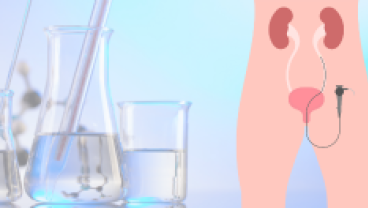About Kidney Transplant
Kidney transplant is a surgical procedure of replacing a damaged kidney with a healthy kidney from a living or deceased donor. Kidneys are the organs of the urinary system. They filter and clean the blood by removing toxic materials. They pick up the waste produced in the body, extract toxins and excess water, and process them to form urine. They also release hormones, stimulate red blood cells, and keep the body’s water content balanced. When kidneys are unable to perform these functions, toxic levels of fluid and waste accumulate in the body, leading to increased blood pressure and kidney failures, also known as end-stage renal disease, where kidneys lose 90% of the ability to function normally. In that case, the waste and toxic materials are removed from the bloodstream through dialysis and kidney transplant. This article explains kidney transplant, its types, procedures and phases, along with how team Fortis help you in the kidney transplant journey.
What is kidney transplant?
Kidney transplant involves taking a healthy kidney from a donor and implanting it into a person with an affected or damaged kidney. The healthy kidney comes from two sources:
- Living donor: A living donor may include family members, spouses, parents, children above 18 years old, and friends. The donor giving their kidney must be healthy, know about the procedures, risks, and complications involved, and give informed consent.
- Deceased donor: A deceased donor kidney may come from those who have elected to donate their organs upon their death or who have suffered a brain death. People can donate their organs when they are alive, where the organs are removed and stored after their death until a recipient has been found.
Kidney transplants are performed to help people with renal failures, chronic kidney disease, and whose kidneys are not functioning properly. They are commonly performed in patients of age between 45 and 65. People can have two, three, or even four kidney transplants in their whole lifetime, depending on the age factor. It is not performed in patients with a serious health condition, recurring infections, or a short life expectancy (patients of age above 65).
Phases of kidney transplantation
The kidney transplantation procedure comprises three phases:
Phase 1 (pre-transplant phase): It is a phase where the recipient is on the deceased donor waiting list or living donor list. During this phase, the recipient undergoes an examination to confirm the safety of the surgery and the ability to tolerate anti-rejection medications after the surgery. The examinations depend on the age of the recipient and the cause of the disease. These tests include:
- General health test: Metabolic test, blood count test, coagulation studies, colonoscopy and many more
- Cardiovascular health test: Electrocardiogram, echocardiogram, cardiac catheterisation
- Pulmonary health test: Chest X-ray and spirometry
After conducting these examinations, a recipient might get excluded from a kidney transplant due to various reasons, like chronic cardiovascular diseases, with many complications, a history of cancer, active infections, and mental illness.
Phase 2 (transplant surgery): This is a phase where the surgery takes place for kidney transplantation. The surgery begins by giving general anaesthesia to the patient. It is known as a heterotopic transplant, where the kidney is implanted in a different location than the original location. The kidney is commonly implanted in the anterior part of the lower abdomen in the pelvic region. During the surgery, an incision is made in the abdomen where the new kidney is to be placed. Then, the artery that carries blood to the kidney and the vein that carries blood away from the affected kidney is surgically connected to the new kidney. Then, the ureter and the tube that carries urine from the kidney are connected to the urinary bladder of the patient. Then, the incisions are closed by stitches. The surgery takes around 2–4 hours.
Phase 3 (post-transplant phase): This is a phase where the function of the new kidney is closely monitored. Surgeons monitor for signs of rejection, compatibility of medications, and vigilance for elevated immunosuppression-related problems like prolonged infections and tumours. The newly transplanted kidneys may take several days to function properly. Until then, dialysis is performed to remove the toxic substances. The immune system of your body fights against foreign bacteria and viruses that lead to illnesses. Likewise, the immune system fights off the transplanted organ, leading to organ rejections. It is a common complication involved in the kidney transplant. The rejections may occur within six months of surgery. Complications and rejections may be managed by various medications, such as:
- Anti-rejection medicines: They are often known as immunosuppressive agents. They help treat early signs of rejection. These are chronic treatments that have to be taken for whole life.
- Anti-inflammatory medicines: These are given to prevent and treat any inflammations that have occurred after the transplantation. For instance, prednisone is administered orally or intravenously.
- Anti-proliferative medicine: It is given to control cell replications and prevent and treat cancers. For example, azathioprine, mycophenolate mofetil, mycophenolate sodium, and sirolimus.
- Cytokine inhibitors: They are given to suppress the synthesis of cytokines, the proteins that regulate the immune system and inflammation. Increased levels of cytokines lead to autoimmune diseases and cancers. For example, cyclosporine, tacrolimus, and tocilizumab.
- Anti-lymphocyte medicines: These are given to prevent acute rejection of the new kidney. For example, anti-thymocyte globulin, muromonab-CD3, anti-interleukin-2 receptor antibody, and alemtuzumab.
Kidney transplant recovery approximately takes about 6–7 weeks. A transplanted kidney has a life expectancy of 6–12 years in the case of a deceased donor and 12–20 years in the case of a living donor. Several instructions are given by surgeons post-surgery, such as:
- Avoid lifting heavy objects
- Quit drinking alcohol
- Engage in more physical exercises, like walking, jogging, and yoga, which help you maintain strength
- Drink plenty of water and stay hydrated
- Prevent eating raw and undercooked foods
- Intake plenty of proteins in your diet
- Avoid taking NSAIDS medications on your own. Consult your surgeons before taking them
When will you require a kidney transplant?
Kidneys are responsible for major functions, such as:
- Filtration of blood to remove excess toxic products, removing waste materials from the body in the form of urine
- Regulation of blood pressure by releasing hormones
- Stimulation of red blood cell production
- Creation of urine
When the kidneys do not perform these functions, it leads to several diseases and conditions affecting the kidneys. That is when kidney transplantations are required to treat various conditions and restore kidney function. Several conditions require kidney transplantation, such as:
- Congenital nephrotic syndrome: It is a condition caused in infants and children. It causes end-stage renal disease, which is kidney failure. It is caused by the inability of kidneys to filter waste products from the blood. The signs and symptoms include proteinuria, hypercholesterolemia, ascites, swelling, and haematuria.
- Alport syndrome: It is a genetic condition caused by insufficient production of IV collagen proteins by the kidney. Type IV collagen is a protein of the filtration membrane called glomerular basement membrane (GBM). It is a three-layer membrane that filters blood. It prevents other products, like blood cells and proteins, from entering the urine. When GBM is affected, Alport syndrome develops. As type IV collagen is also present in ears and eyes, this condition also affects vision and hearing along with the kidney.
- Polycystic kidney disease: It is a condition where cysts develop in the kidneys. It is a chronic condition where cysts enlarge over time, preventing the kidney from filtering waste from the blood, leading to kidney failure. It is caused by genetic mutations. The symptoms include headache, haematuria, abdomen pain, and high blood pressure.
- Glomerulonephritis: It is a condition where glomeruli inside the kidneys are damaged, which can lead to kidney failure. It can be acute or chronic. The symptoms include haematuria, nausea, abdomen pain, and swelling of the legs.
Types of kidney transplant done at Fortis Healthcare
- Deceased-donor kidney transplant: It is a kind of kidney transplant where the kidneys are taken from the people who have donated their organs/kidneys after their death. The kidneys are removed and stored until a recipient is selected.
- Living-donor kidney transplant: Here, the kidneys are taken from a living donor, usually from the recipient’s family members, like a brother, parents, spouse, and friends.
- Preemptive kidney transplant: It is a kind of kidney transplant carried out before a patient starts dialysis, which is a treatment that removes waste materials from the body in case of kidney failure.
- Robotic assisted kidney transplant: It is a key surgical speciality at Fortis. This surgical approach combines the precision and dexterity of robotics to achieve successful kidney transplants. This technique employs a surgical robot.
Benefits of early kidney transplant
- Early kidney transplant lowers the risk of death.
- It is cost-effective, requiring lower treatment costs.
- It significantly improves the quality of life by allowing them to do normal activities.
- Early kidney transplants involve fewer risks and complications.
- It enables an increased survival rate when compared to dialysis.
- It allows patients to recover fast.
- It improves overall health as it involves fewer risks, like infections, organ rejections, and cardiovascular diseases.
- It improves the social and emotional well-being of the patients.
- It reduces treatment costs as it provides a permanent solution, and there is no need for frequent dialysis.
Journey of kidney transplant patients at Fortis Healthcare
Fortis recognises the importance of kidney transplantation as a potentially life-saving procedure of end-stage renal disease. The team works in coordination with nephrologists, transplant surgeons, and administrative assistants to save lives. They help in every stage of kidney transplantation.
Prior to the transplant:
- To ascertain the patient’s eligibility for transplantation, they help in the examination procedures by testing their general health and medical background prior to transplant.
- They conduct counselling, providing guidance regarding the advantages and disadvantages of transplantation and the risks and complications involved.
- They play a major part in matching patients with a suitable kidney donor as they collaborate with national organ registries and other institutions.
- They carry out pre-transplant care by providing dialysis to regulate kidney function until transplantations are done.
During the transplant:
- Surgery during transplantations is carried out by experienced doctors and skilled teams at Fortis.
- Advanced diagnostic tools and technology are used for monitoring during the surgery.
- Patient safety is paramount.
Post-transplant:
- Advanced medications with fewer side effects are given to patients to enable faster recovery.
- Follow-up visits are planned on a regular basis to evaluate the patient’s condition.
- They encourage patients to make dietary plans and balanced nutrition.
- They help patients by guiding them in lifestyle modifications to maintain and stay healthy.
- They help in long-term care by conducting follow-up care after the discharge of the patients to make sure their health condition is good and well.
- They offer complete assistance and treatment during the kidney transplant process.
Conclusion
To sum up, kidney transplantation is a delicate and intricate process that preserves lives by treating end-stage renal disease. It offers better rehabilitation, higher chance of survival, and enhanced quality of life with decreased complications. Although risks are involved, they are outweighed by benefits, giving you renewed hope for a longer and healthier life.
Our Team of Experts
View allMedical Procedures for Kidney Transplant
View allOur patient’s stories
View allRelated Specialities
Other Specialities
-
Explore Hospitals for Kidney Transplant
Fortis Escorts Hospital, Amritsar Fortis Escorts Hospital, Jaipur Fortis Flt. Lt. Rajan Dhall Hospital, Vasant Kunj Fortis Hospital, Shalimar Bagh, New Delhi Fortis Hospital BG Road Bangalore Fortis Hospital CG Road Bangalore Fortis Hospital, Rajajinagar, Bengaluru Fortis Hospital, Noida Fortis Hospital, Ludhiana Fortis Hospital, Anandpur, Kolkata Fortis Hospital, Richmond Road, Bengaluru Fortis Nagarbhavi Bangalore Fortis Escorts Heart Institute, New Delhi Fortis Hospital Mall Road, Ludhiana Fortis Hospital, Manesar, Gurugram -
Explore Doctors for Kidney Transplant by Hospital
Doctors in Fortis Escorts Hospital, Amritsar Doctors in Fortis Escorts Hospital, Jaipur Doctors in Fortis Flt. Lt. Rajan Dhall Hospital, Vasant Kunj Doctors in Fortis Hospital, Shalimar Bagh, New Delhi Doctors in Fortis Hospital BG Road Bangalore Doctors in Fortis Hospital CG Road Bangalore Doctors in Fortis Hospital, Rajajinagar, Bengaluru Doctors in Fortis Hospital, Noida Doctors in Fortis Hospital, Ludhiana Doctors in Fortis Hospital, Anandpur, Kolkata Doctors in Fortis Hospital, Richmond Road, Bengaluru Doctors in Fortis Nagarbhavi Bangalore Doctors in Fortis Escorts Heart Institute, New Delhi Doctors in Fortis Hospital Mall Road, Ludhiana Doctors in Fortis Hospital, Manesar, Gurugram




























